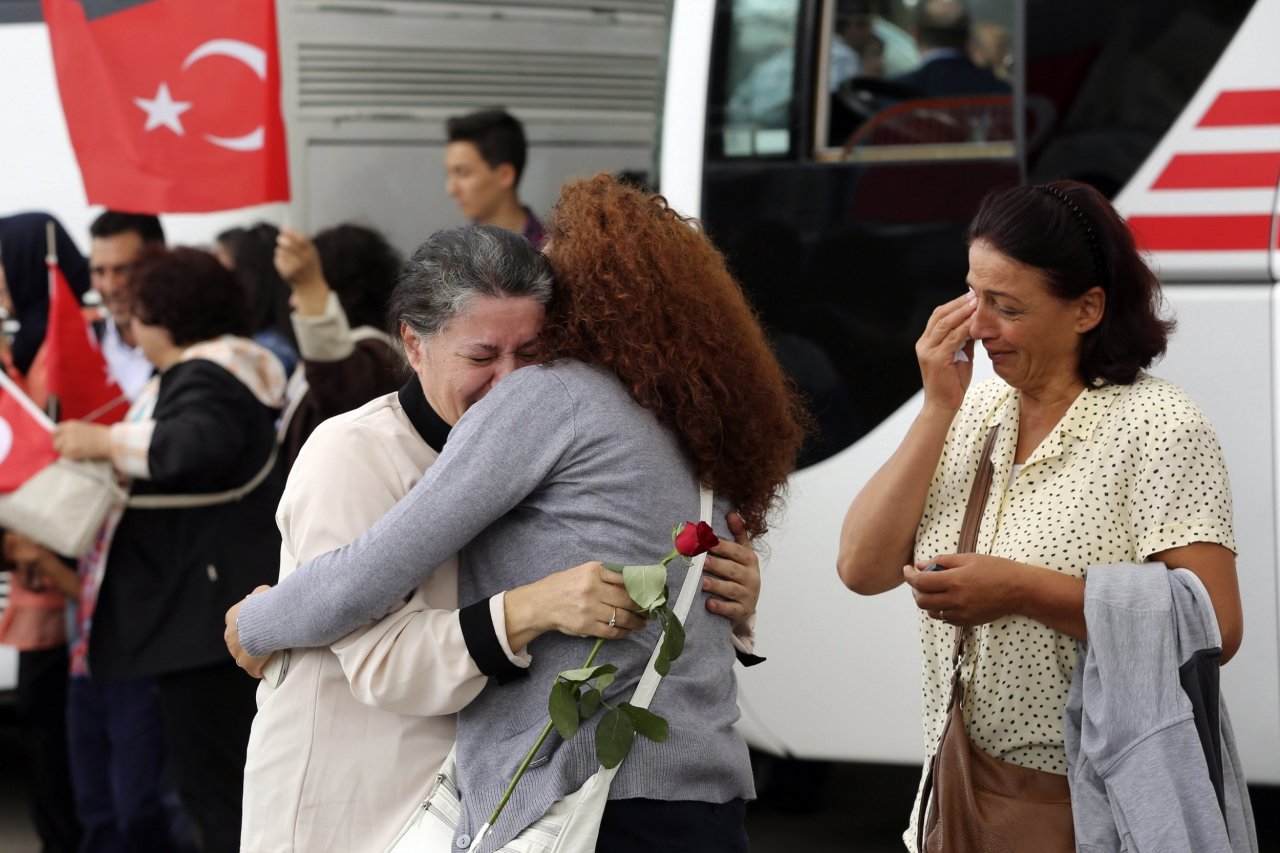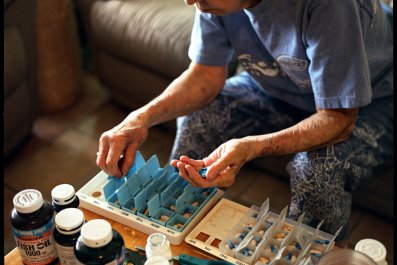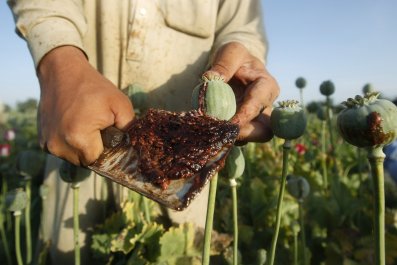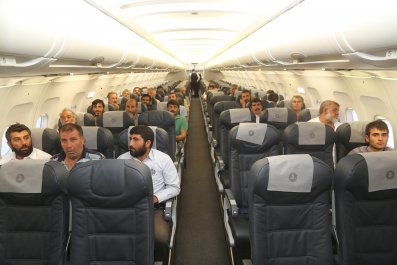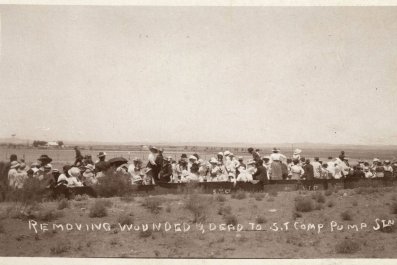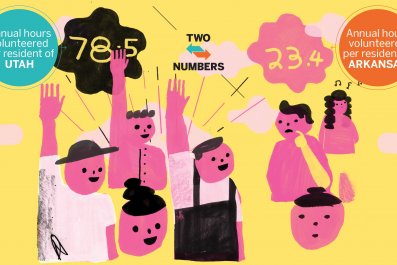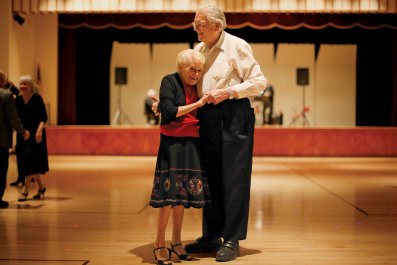The names of American journalists James Foley and Steven Sotloff, and the British aid worker David Haines, have become well-known since their gruesome deaths at the hands of the so-called Islamic State (Isis). So has the name Alan Henning, the British aid worker named as Isis's next victim, and John Cantlie, a British journalist snatched by the extremist group two years ago. Abdullah al-Khalil, Raad Mohammed al-Azaoui, Ahmed Khaled al-Dlimi and Maitham al-Chibani, by contrast, have received far less attention, at least in the Western press. These missing men are among thousands of Iraqis and Syrians who have been kidnapped by Isis and whose fate remains unknown. The brutal killings of the American and British hostages was just a glimpse into the extent of the war crime being committed by armed groups across Syria and Iraq, according to human rights organisations.
Few details are known about the cases of the Syrians, Iraqis and Lebanese abducted by Islamist groups. According to local reports, two cars snatched al-Khalil, a prominent Syrian lawyer, from outside his office in the northeastern city of Raqqah in May 2013. Al-Chibani, an Iraqi journalist, was taken from al-Diwaniya, south of Baghdad. Al-Dlimi was captured in Tikrit, the Sunni stronghold in Iraq. And in Samarra, north of Baghdad, Isis took al-Azaoui, a cameraman, along with about 20 other Iraqi nationals.
Isis said it would decapitate al-Azaoui because he refused to work for the group. Whether the group has carried out their threat is unknown. The other missing hostages are probably being held under a similar condition – join the cause or die an ignominious death.
These are just a few vignettes of forgotten lives. But there may be thousands more hostages being held in dire conditions by Isis and other groups. Victims include members of ethnic and religious communities, such as Yazidis, Assyrian Christians, Turkmen Shia and others.
Among the hostages are local policemen, journalists, children, Syrian government soldiers and villagers who simply found themselves in the wrong place at the wrong time. "Some of them simply vanish," says Neil Sammonds, an Amnesty researcher focusing on Lebanon, Syria and Iraq. "Some of them are taken for money, some because they were seen to commit prohibited religious acts, and some were simply targeted by the groups."
He mentions a "forgotten" case of 186 Kurdish children in Kobani in northern Syria who were taken by Isis in May. The case did not get much Western press coverage because it took place at the same time abother Islamist terrorist group, Boko Haram, abducted more than 200 schoolgirls in Nigeria. Some of the Kurdish children, such as Mustafa Hassan, who spoke to The Guardian, managed to escape. "They asked us whether or not we wanted to join Isis," he said. The children were beaten by Isis soldiers – Chechen and foreign fighters among them.
The fate of the rest of Hassan's schoolmates has not been reported. However, an Amnesty report cites children in Isis detention centers being flogged. One time an anguished father had to "endure screams of pain as Isis captors tormented his son in a nearby room," says the report. "These are not the only cases," says Sammonds. "There are also migrant workers, some ordinary families – not [rich] businessmen taken for negotiating large sums of money." They are probably taken opportunistically, he says, to be used for prisoner swaps or petty political gain. "There are loads and loads of abductions no one is talking about," says Donatella Rovera, the emergencies researcher of Amnesty, who investigates Isis's crimes.
A Western security adviser, who worked on the Sotloff negotiations and spoke on condition of anonymity, says it is impossible to track the exact number of those held captive by Isis. "There is no quantitative number of how many hostages there are in total. There is a lot of hearsay."
What we do know is that in remote areas of northeastern Syria – where Isis operates – it is common for militias and extremists to abduct locals for small amounts of money. "We are not talking hostages requiring Qatar to get involved with millions of dollars," says a Syrian activist from Homs who goes by the pseudonym "The 47th". "We are talking about Joe Shmoe standing in front of a hospital in a village outside Raqqah smoking a cigarette. The next thing you know, Isis drives up and he's gone. His family will be told to hand over $500 – or he's killed." According to the activist, this is how Isis funds its "everyday budget – eating, drinking, living. The oil revenue that they are stealing does not filter down to the remote areas. This is their system of getting cash – kidnapping local people and seeking ransom from their families."
One Syrian woman captured and imprisoned by Isis told The 47th she saw "dozens of other people who were being held hostage". Among the hostages awaiting their fate are 49 Turkish diplomats, kidnapped in June and being held in safe houses in Mosul by Isis, as well as 39 Indian domestic cleaners, who were abducted while fleeing the Isis advance in June. "There are also Iraqi journalists, Syrian journalists and activists who are currently being held hostage, but knowledge about whether they are alive is very difficult to come by," says Peter Bouckaert, the emergencies director of Human Rights Watch. "The foreign hostages were often held together, so we know who was there and not there. Austin Tice [a Washington Post reporter kidnapped in Syria in August 2012], for example, was not with them. But since the Iraqis and Syrians are kept separately, it's hard to know their fate."
Robert Mahoney, from the Committee to Protect Journalists, estimates there are 20 reporters being held inside Syria, mainly by Isis, and the vast majority are Syrian. "Isis seems to have a policy of stopping independent news coverage in areas under its control," he says. The list of hostages also contains Western aid workers, but most nongovernmental organisations refuse to discuss how many staff they have working in the region and who might be missing. The Agency for Technical Cooperation and Development (Acted), the French charity for which David Haines worked, would not comment on whether any other hostages had been taken alongside him.
Rovera says she was aware of abductions as early as the summer of 2012: "I remember people being kidnapped and their families being asked for small amounts of money, $1,000 or a Kalashnikov [rifle]." She says Isis is not the only group involved in kidnapping. "In Iraq, where I recently was working, the Iraqi Shia militias are asking $50,000 to $100,000 [for Sunnis] they kidnap and then sometimes killing them anyway after they get the money," she says.
Rovera says other armed groups – such as factions of the Free Syrian Army (FSA) and al-Nusra, the al-Qaida affiliate in Syria – are also responsible: "Even when you think about [Sotloff and Foley], they were not taken by Isis," she says, "they were taken by other groups then passed to Isis. I know of one guy in Syria who was taken months ago by Isis. He just never came back. Finally one day, his wife got a message: "You should start a new life. He's dead." No one knew him. He was not famous or well-known or rich. Why did they take him? We don't know."
One former Western hostage, who was released last summer, recalls being moved to a prison inside Syria: "There were a number of Syrian hostages, people being held in cells, for committing moral crimes like drinking or smoking." On September 20th, 49 Turkish hostages including diplomats, soldiers and children, were released by Isis after being held for three months. They arrived safely in Ankara but there are unanswered questions surrounding the release – the Turkish government had resisted earlier pressure from Washington to join their anti-Isis coalition. Was their wariness part of their campaign to free the hostages? Earlier, the government had slapped a ban on all reporting of its hostages, on the grounds that reports could endanger their lives.
Families of the detained were vocal in their anger: Muammer Tasdelen, whose sister Nermin Yildiz, her husband Hakan and their year-old son were among the hostages, had spoken out: "It's time the Turkish government took matters into its own hands and brought our people back home," he told a Turkish news portal, accusing the government of gross negligence. "They ought to have seen this coming. Isis wasn't beamed from outer space. They should have evacuated the consulate in time."
The governor of Mosul, now in Erbil, Atheel al-Nujaifi, says he made a call to the interior minister of the Kurdistan Regional Government as Isis was poised to take over the city, urging him to do something to protect the citizens. The Turkish authorities seemed to ignore it. "It is unthinkable the Turks were not aware of the danger," wrote Amberin Zaman, a Turkish reporter in Al-Monitor. "Yet apparently they did not feel threatened enough to evacuate the consulate." Tanju Bilgic, the Turkish foreign minister's spokesman, did not return calls asking for an explanation.
Al-Nujaifi says he gets reports on the condition of the Turkish hostages held in safe houses around Mosul, but moved around all the time. But he does not deal with Isis directly. "They are holding other hostages, too," he says. "Iraq people, former Baathists officials and others."
In Lebanon, another hostage crisis is causing a political storm with families of the missing angry at the lack of the government's response. In August, 19 Lebanese soldiers were abducted after a battle between Syrian gunmen and Lebanese forces in the border town of Arsal. In the aftermath, Syrian fighters dragged the soldiers to the remote mountain region nearby. According to the Lebanese press, the captors are both Isis and al-Nusra. Four soldiers have been released; two have been killed – Ali al-Sayyed, a Sunni, then Abbas Medlej, a Shia. Both were beheaded.In the past few days, a third hostage Mohammad Hamieh, was executed by al-Nusra with gun shot.
The mothers of the soldiers, frustrated by what they see as their government's lack of response, have staged a sit-in in downtown Beirut, sleeping and living in tents, and say they will remain until all the hostages are freed. "There are Islamist prisoners in jail," says Amena, mother of one of the hostages, 23-year-old Hussein Mahmoud Ammar from Aandqet, Lebanon. "Why can't the government accept an exchange? Our children were protecting our country," she says. "I can't eat or sleep since he is gone. He is a part of me, which is lost. When you are a mother, you know how it feels. I knew he was with Isis for 10 days after his abduction, but [the government] did not want me to know because I would be devastated."
"The demands of the kidnappers can be met," says Sheikh Ousama Zakaria, imam of the mosque in Akkar, who says he will not leave the sit-in until the last soldier is released. "[The jihadi kidnappers] want an exchange with Islamic prisoners in Lebanese jails. Hezbollah negotiated the exchange of detainees with Israel and it was a success. Why are they now refusing to negotiate the release of Islamists?" For its part, the Lebanese government says it has been fighting the Islamists. "But if we don't get these soldiers back we are in real trouble," says one senior Lebanese government official who spoke off the record. "They have to bring them home. It's the basic rule of war. You don't leave a man behind."
Amnesty International is among the organisations calling for states with influence in the region – in particular Turkey and Qatar – to ensure the missing are released and the kidnappers face justice. But it is doubtful Isis and other groups will respond. Since US president Barack Obama announced his anti-Isis military strategy, the group is on the defensive and recruiting more fighters to meet the US coalition onslaught. According to the UK-based Syrian Observatory for Human Rights, more than 6,000 jihadists have flocked to join Isis since the airstrikes began last month.
"Kidnapping is how they make their money," says The 47th. "Remember, Isis can't call Bank of America and get a wire transfer. Abduction is their money source. It's an operation which makes total sense."



